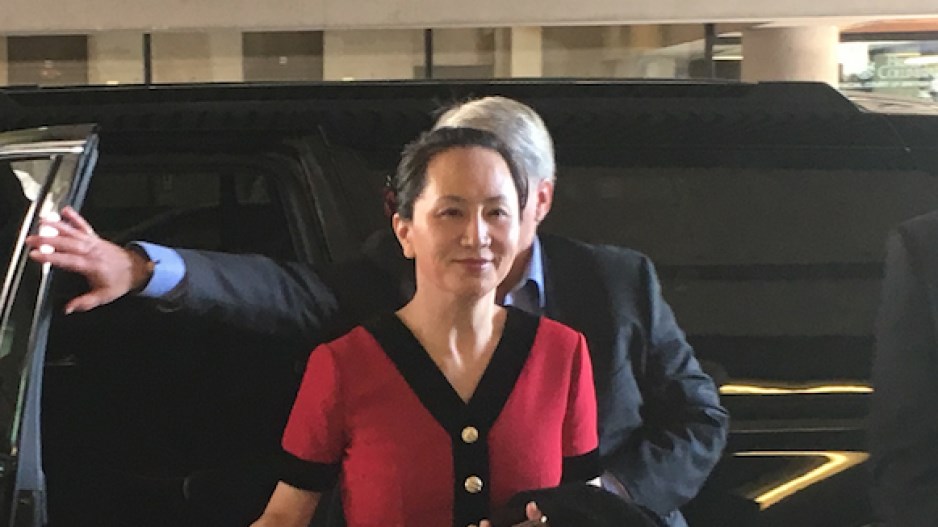BC Supreme Court may have to rethink its decision last December to disallow live broadcast of the Meng Wanzhou extradition hearings to satisfy the public interest in the case while respecting social distancing, an immigration law expert said.
The assessment comes after the defence lawyers for the Huawei Technologies Co. Ltd. CFO, as well as Crown prosecutors and Associate Chief Justice Heather Holmes, met via teleconference on March 30 in a hearing to discuss how to keep the case on track.
According to court transcripts of the hearing, Crown prosecutors are eager to have the case move forward because of its uniqueness (it is one of the highest-profile extradition processes in Canadian history and touched off the current diplomatic row between Ottawa and Beijing).
Meng’s defence, meanwhile, asked that the Huawei executive be required to appear appear in court only if the final decision was to not extradite her to the United States, where she is wanted for money laundering, fraud and violating sanctions on Iran.
For renowned Vancouver-based immigration lawyer and policy consultant Richard Kurland, the solution will likely be either to reschedule at a later date or to convene via electronic means or in-person with social distancing measures. Given the intense public interest surrounding the case, Kurland said a complete opening of an in-person hearing to the public is not possible under COVID-19 circumstances.
There is complication on the video broadcast side, as well. Last December, Holmes rejected a bid by accredited media representatives to carry a live-broadcast stream of the hearings this year – a decision supported by both Meng’s defence team and Crown lawyers. However, the public interest in this case and the unusual nature of COVID-19 may force a rethink, Kurland said.
“Usually, even when a trial is teleconferencing, the door is left open at the court room to allow the public to observe,” he said. “Given the current circumstances, in the case of Ms. Meng, the court may need to review a decision to not broadcast.… It depends on also all the parties would want it broadcast. If the defence and the Crown have no objections, it should be taken into account by offering up a fresh motion based on new information and circumstances regarding the COVID-19 issue.”
“That, to me, would meet the spirit and intent of the original ruling,” Kurland said. “The Meng case is not high priority because Ms. Meng is not in detention. However, there is public interest high priority, and that’s something for the court to consider. So the court may continue along the same line, engage with the exact same decision – but with a slight venue change. Access would be limited, and in the room, it’s possible for six-foot distance markers to be placed to comply with social distancing rules. It’s very workable.”
Court documents from March 30 showed that the next case management conference will be held on April 27. The original April 27-30 dates to discuss Meng’s application to pursue additional evidence from Canadian and U.S. authorities have been vacated, although the June 15-30 dates are being reserved. Holmes also said her decision on the issue of double criminality – whether Meng’s alleged conduct constitutes an arrestable offence in Canada, a key requirement for extradition – is “not imminent.”




